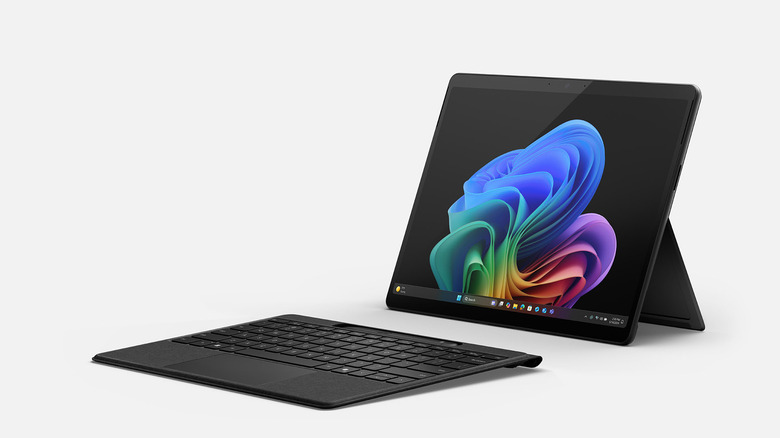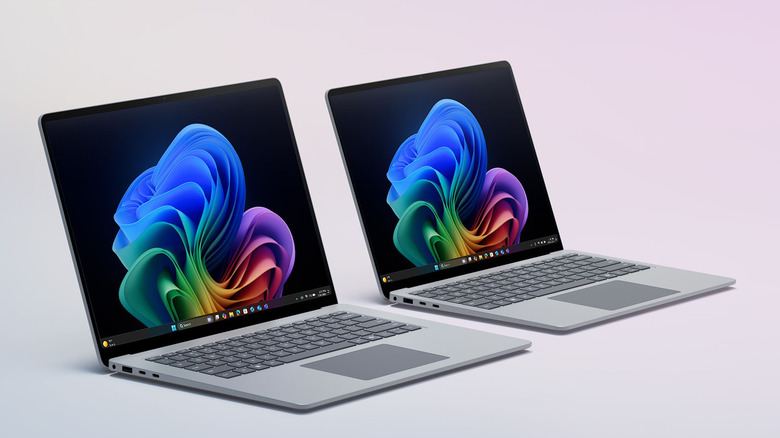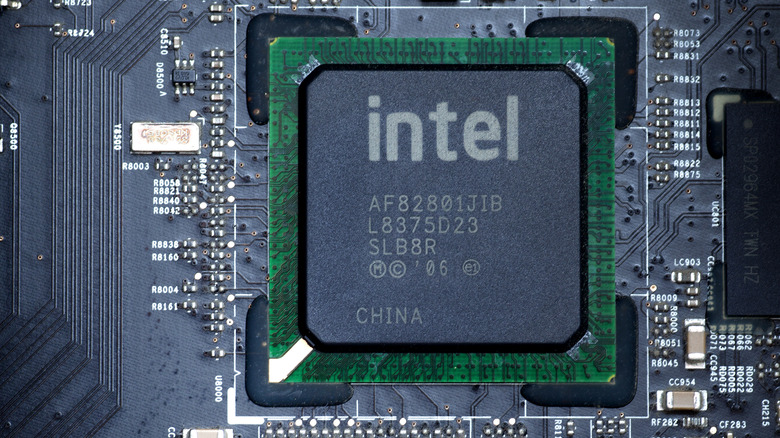Microsoft's New Surface Laptop And Surface Pro Go Big On AI, And Intel Misses Out
Microsoft is ushering in a new era of Windows PCs, one built atop the Windows ARM foundation that pushes AI smarts into almost every corner of the operating system. Leading the charge are the Surface Laptop (7th Edition) and the Surface Pro (11th Edition). Microsoft boldly claims that these machines are "faster and have more AI acceleration than MacBook Air," thanks to the Qualcomm silicon powering these machines.
The new devices fall under the aegis of Microsoft's Copilot+ PCs approach, thanks to the dedicated AI accelerator that enables features like Live Captions, translations, and Recall — which allows you to scroll through your computer history on a comprehensive timeline — among others. The new laptop and slate will be available in variants with Qualcomm Snapdragon X Elite and Plus SoCs, which deliver 45 TOPS worth of NPU computing power, leapfrogging Apple's new M4 silicon by roughly 20% at AI workflows.
The Qualcomm silicon serves up to 12 Oryon cores with a peak frequency of 3.8 GHz and maxes out at 4.2 GHz in dual core boost mode. The Snapdragon X Elite will be offered in three SKUs, while the X Plus trim will be available in a single configuration packing 10 cores that can muster 3.4 GHz of peak processing firepower, matching the X Elite's NPU performance.
Familiar package, reinvented innards
On-device AI processing is a key selling point, and Microsoft is touting it as a standout trait of its new Copilot+ Surface machines. The Surface Laptop (7th Edition) comes in two variants. The 13.8-inch version starts at $999, while the 15-inch model has a starting price of $1,299. Memory configurations include 16 or 32 GB of LPDDR5x RAM and 256GB of base storage, which can go up to 1 TB.
The PixelSense display on each trim delivers a 3:2 aspect ratio, a pixel density of 201 PPI, 120 Hz of peak refresh rate, and Gorilla Glass 5 protection. Microsoft is touting up to 22 hours of local video playback, which eclipses Apple's claim of 18 hours of battery longevity on the 15-inch MacBook Air with the M3 silicon inside. Port selection is marginally better, thanks to a pair of USB-C inlets and a USB-A 3.1 interface.
The Surface Pro (11th Edition) also starts at $999. The 2-in-1 offers a more pixel-dense 13-inch display with a resolution of 2880 x 1920 pixels, 120Hz refresh rate, and an optional OLED panel this time around, similar to Apple's latest M4-powered OLED iPad Pro. It also offers two USB-C ports and tops up at a much faster 65W pace. Microsoft has also launched the new Surface Pro Flex keyboard to go with it. Both devices are now up for pre-order from Microsoft's official store, while authorized retail partners will land them globally starting June 18, 2024.
Intel announces its own Lunar Lake processors
While the new machines push Qualcomm firmly in the AI-powered era of Windows on Arm, Intel has been largely absent. Last year, Intel CEO Pat Gelsinger downplayed the threat of Arm PC. However, Intel today announced that its upcoming Lunar Lake processors will power Copilot+ PCs later this year, claiming an AI firepower north of 40 TOPS. This would be followed by Arrow Lake silicon in the last leg of 2024. The competition, on the other hand, is increasingly gravitating towards the Arm ecosystem.
Nvidia, which rode the AI wave to a multi-trillion dollar valuation, is said to be eyeing Arm-based PC chips. AMD is also planning to make ARM-based PC chips. So far, AMD has remained loyal to the x86 architecture while challenging Nvidia on the GPU front. Neither company has officially confirmed their Arm plans yet, but assuming they harbor such plans, Intel could be in serious trouble. Apple's M-series processors have already proved that its computing hardware can beat Intel at its own game by a healthy margin. As Microsoft enters the Arm PC fray with a renewed focus and Qualcomm as its silicon partner, Intel stands at an inflection point for the future of computing.


